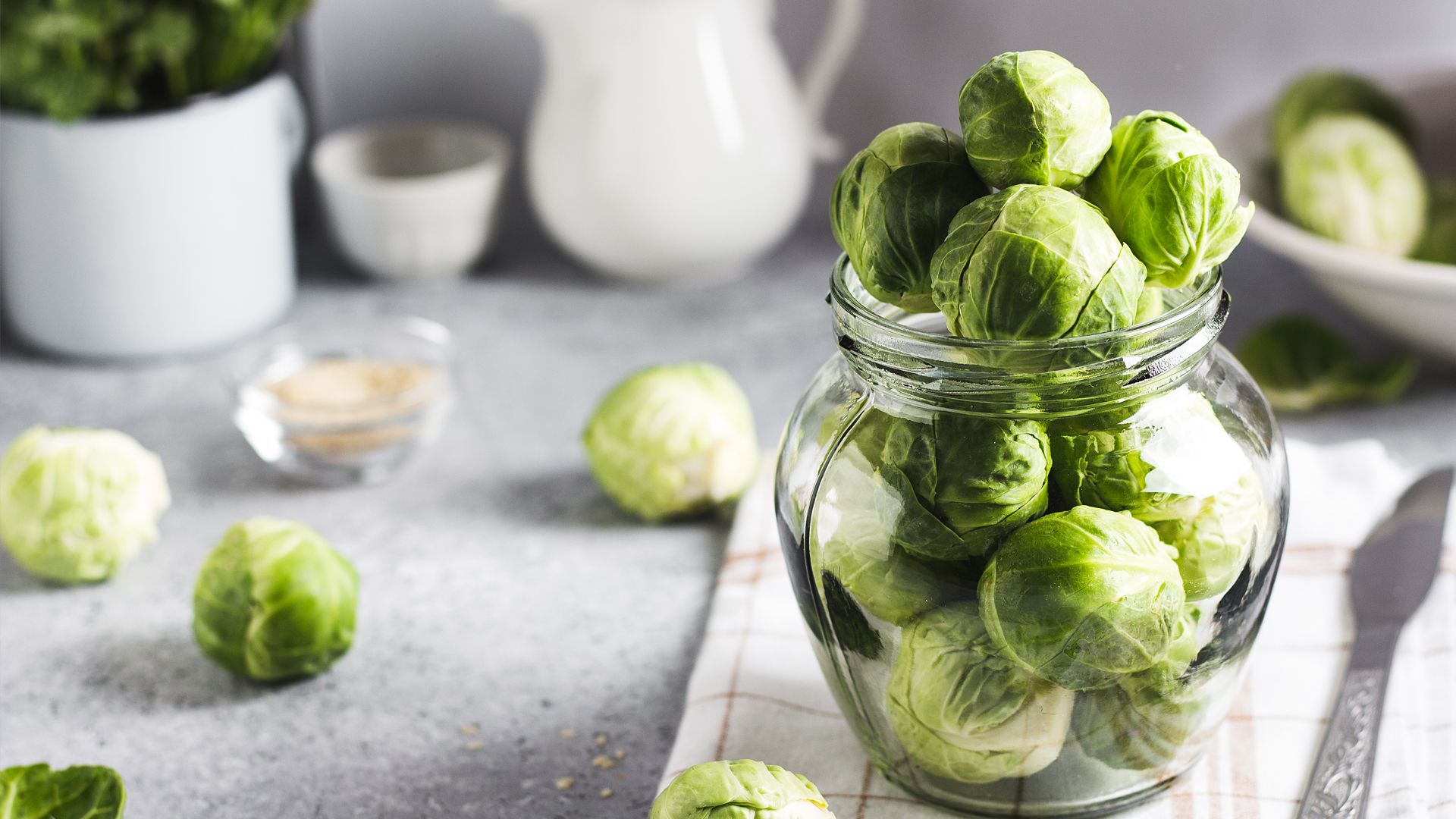Nutritional Facts of Brussels sprouts
May 16, 2020 | by Yashaswi Pathakamuri | Posted in Nutrition Facts

The Brussels sprouts are a member of the Brassicaceae family belongs to Gemmifera Group, grown for its edible buds and are closely related to kale, cauliflower, Broccoli and cabbage. (cruciferous vegetables). This article tells you about the nutritional facts of brussels sprouts.
This leaf vegetables are typically 1.5–4.0 cm in diameter and look like miniature cabbages. The Brussels sprout has long been popular in Brussels, Belgium. Brussels sprouts are a staple food of Christmas and Thanksgiving dinner.
Nutrition
Brussels sprouts are high in nutrients and easy to add in diet. Brussels sprouts provide low calories and fat, but are excellent source of protein, fiber, vitamins and minerals. In 1 cup of brussels sprouts 84% of moisture is present.
| Nutrients | Amount per 1 cup (100 g) |
| calories | 44.22 kcal |
| Carbohydrates | 5.09 g |
| Protein | 4.26 g |
| Fat | 0.5 g |
| Fiber | 4.29 g |
| Calcium | 53.99 mg |
| Phosphorus | 98.56 mg |
| Sodium | 18.51 mg |
| Potassium | 639 mg |
| Omega-3 fats | 41.11 mg |
| Iron | 1.54 mg |
| Vitamin C | 89.45 mg |
| Magnesium | 32.99 mg |
| Folate | 85.45 mcg |
| Beta carotene | 360 mcg |
| Vitamin A | 60 mcg |
Antioxidants
Brussels sprouts are rich in antioxidants and contain compounds that may help lower levels of inflammation. Antioxidants are compounds that reduce oxidative stress in your cells and help lower your risk of chronic disease. Brussels sprouts contain kaempferol, an antioxidant that may reduce cancer growth, decrease inflammation and promote heart health.
Calories
Brussels sprouts are low in calories and can be easily added to your diet. People can enjoy with the health benefits of brussels sprouts, staying within calorie limit. 1 cup of brussels sprouts contains only 44 calories.
Protein
Brussels sprouts are the cruciferous vegetables that contain high protein. They contain essential amino acids, which are the building blocks of protein and are essential for body because body cannot make them.
Fiber
Brussels sprouts are high in fiber. It keeps you fuller for long time and helps in obesity. Fiber also promotes digestive health by helping feed the beneficial bacteria in your gut. It supports regular bowel movements and prevents constipation. Fiber rich foods also helps to lower the risk of diabetes and heart diseases.
Vitamins and minerals
Vitamin A: Brussels sprouts are also a good source of vitamin A in the form of beta-carotene, which is crucial for healthy skin. One cup of raw Brussels sprouts provides 396 mcg (microgram) of beta-carotene.
Vitamin K: Brussels sprouts are especially rich in vitamin K. This important nutrient plays a vital role in the body. Low intake of vitamin K causes higher risk of bone fracture. Adequate vitamin K is necessary for healthful bone formation, which is also necessary for blood clotting and mineralization.
Did you Know?
Brussels sprouts are also a great source of calcium. Calcium is essential for bone strength and growth. In addition, Brussels sprouts contain small amounts of vitamin B6, potassium, iron, thiamine, magnesium and phosphorus.
Vitamin C: The antioxidant vitamin C is high in brussels sprouts, this helps to promote iron absorption and involves in tissue repair and important for immune health and functioning. It protects skin cells against sun damage and pollution. Getting enough dietary vitamin C may help people preserve eye health and reduce the risk of cataracts.
Recent Posts
Categories
- Arthritis
- B vitamins
- Berries
- Best time to take
- Breasfeeding
- cancer
- Chronic Diseases
- COVID-19
- Dairy
- Deficiency
- Diabetes
- Diet
- Diseases
- FAQ's
- Fats
- Fever
- Hair
- health
- Kidney
- Leafy Vegetables
- Lung disease
- mango
- Meat
- Millets
- Minerals
- Myositis
- Nausea
- Nutrition Facts
- Nuts and Seeds
- Oats and Oatmeal
- Psoriasis
- Recipes
- Rice
- Skin
- spices and Condiments
- Summer
- Thyroid
- Varicose Veins
- Vegetables
- Vitamins
- Vomiting
- water
- weight gain
- weight Loss
Archives
- April 2024
- March 2024
- February 2024
- January 2024
- December 2023
- November 2023
- October 2023
- September 2023
- August 2023
- July 2023
- June 2023
- May 2023
- April 2023
- March 2023
- February 2023
- January 2023
- November 2022
- October 2022
- September 2022
- August 2022
- July 2022
- June 2022
- May 2022
- April 2022
- March 2022
- February 2022
- January 2022
- December 2021
- November 2021
- October 2021
- September 2021
- July 2021
- June 2021
- May 2021
- April 2021
- March 2021
- February 2021
- January 2021
- December 2020
- November 2020
- October 2020
- September 2020
- August 2020
- July 2020
- June 2020
- May 2020
- April 2020
- March 2020
- February 2020
- January 2020